
John Davies Cale is a Welsh musician, composer, and record producer who was a founding member of the American rock band the Velvet Underground. Over his six-decade career, Cale has worked in various styles across rock, drone, classical, avant-garde and electronic music.
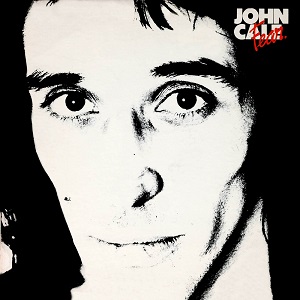
Fear is the fourth solo studio album by the Welsh rock musician John Cale, released on 1 October 1974 by Island Records.

The Stooges is the debut studio album by American rock band the Stooges, released on August 5, 1969 by Elektra Records. Considered a landmark proto-punk release, the album peaked at number 106 on the US Billboard Top 200 Albums chart. The tracks "I Wanna Be Your Dog" and "1969" were released as singles; "1969" was featured on Rolling Stone's list of the "100 Greatest Guitar Songs" at number 35. In 2020, it was ranked number 488 on Rolling Stone's 500 Greatest Albums of All Time.

Shine On Brightly is the second studio album by English rock band Procol Harum, released in 1968 by record labels Regal Zonophone and A&M.
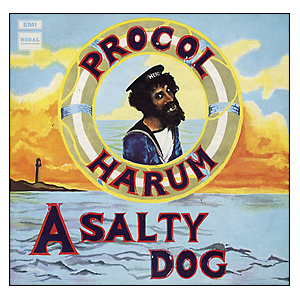
A Salty Dog is the third studio album by English rock band Procol Harum, released in 1969 by record labels Regal Zonophone and A&M.

Grand Hotel is the sixth studio album by Procol Harum. Released in 1973, it signalled a change of direction for the band. Guitarist Dave Ball, who had joined the band for their live album the previous year, left shortly after the photo shoot for the proposed album's cover, to be replaced by Mick Grabham. Grabham's head was superimposed on the front and back cover of the album on Ball's body. Although the band had gone through significant personnel changes in previous years, the band would enter its most stable phase with this lineup.

Exotic Birds and Fruit is the seventh studio album by British progressive rock band Procol Harum. It was released in 1974. The cover artwork for the album is by Jakob Bogdani, a noted Hungarian artist whose paintings centred on exotic birds and fruit.

Procol's Ninth is the eighth studio album by Procol Harum, and was released in August 1975. Produced by songwriters Jerry Leiber and Mike Stoller, Procol's Ninth featured a slightly different direction from the previous album, with a much starker sound than Chris Thomas's more elaborate productions. According to an interview with guitarist Mick Grabham, conducted by Roland Clare for the 2009 reissue, Leiber and Stoller focused less on the production sound and more on "the structure of the songs". The band appeared on the cover of the album in a straightforward unassuming photograph, mirroring the sound of the album itself. The cover featured simulations of each band member's signature.

The Long Goodbye is an orchestral album of Procol Harum music that was released in 1995. The album was produced by longtime Procol Harum vocalist/pianist/songwriter Gary Brooker, and among the various musicians who contributed to the album are Procol Harum members Robin Trower and Matthew Fisher. The main performers on the album are the London Symphony Orchestra and the London Philharmonic Orchestra, with one track performed by Sinfonia of London.
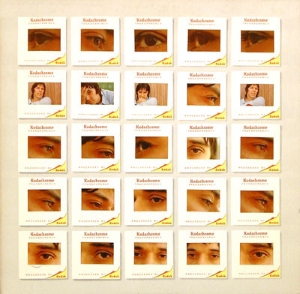
The Academy in Peril is the second solo album by Welsh musician John Cale, released in July 1972 by record label Reprise.

Music for a New Society is the eighth solo studio album by the Welsh musician John Cale, released in September 1982 by ZE Records and Island Records. With the suggestion from ZE Records owner Michael Zilkha, Cale performed the album mostly improvised live at Skyline Studios in New York City. The album was a creative shift after several rock-oriented albums, with sparse piano-based performances.
Christopher P. Thomas is an English record producer who has worked extensively with the Beatles, Pink Floyd, Procol Harum, Roxy Music, Badfinger, Elton John, Paul McCartney, Pete Townshend, Pulp and the Pretenders. He has also produced breakthrough albums for the Sex Pistols, the Climax Blues Band and INXS.

Words for the Dying is the twelfth solo studio album by the Welsh musician John Cale, released in 1989 by record labels Opal and Warner Bros.

Wilton Lewis Felder was an American saxophone and bass player, and is best known as a founding member of the Jazz Crusaders, later known as The Crusaders. Felder played bass on the Jackson 5's hits "I Want You Back" and "ABC" and on Marvin Gaye's "Let's Get It On".
David J. Ball was an English guitar player.
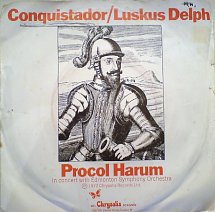
"Conquistador" is a song by the English rock band Procol Harum. Written by Gary Brooker and Keith Reid, it originally appeared on the band's 1967 self-titled debut album. It was later released as a single from the band's 1972 live album Procol Harum Live: In Concert with the Edmonton Symphony Orchestra. It is one of the band's most famous and popular songs and their third Top 40 hit on the U.S. Billboard Hot 100, peaking at number 16.
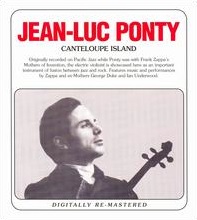
Cantaloupe Island is an album by French violinist Jean-Luc Ponty that was recorded in 1969 and released in 1976 by Blue Note. It combines two previously issued albums: King Kong: Jean-Luc Ponty Plays the Music of Frank Zappa and Jean-Luc Ponty Experience with the George Duke Trio, both recorded in 1969 for the World Pacific label.
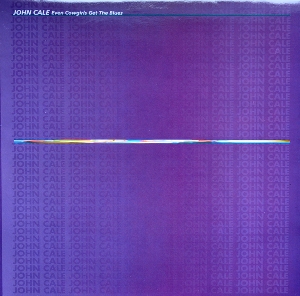
Even Cowgirls Get the Blues is the third live album by Welsh musician John Cale. It was originally released on LP in 1986 and then later reissued on cassette in 1987 with a different cover and drastically altered track listing. In 1991 it was reissued on CD with a third cover design, but with contents identical to the cassette edition. It was recorded in CBGB club in New York between 1978 and 1979 with three former members of Patti Smith Group, bassist Ivan Kral, keyboardist Bruce Brody and drummer Jay Dee Daugherty. The LP version contains different track listing than CD.
"Andalucia" is a song written by Welsh musician John Cale, released as the fourth track on his 1973 album Paris 1919. It was covered in 1990 by the alternative rock band Yo La Tengo, in their album Fakebook.
"Paris 1919" is a song written by Welsh musician John Cale. It was released as the sixth track on his third solo studio album of the same name (1973).
















